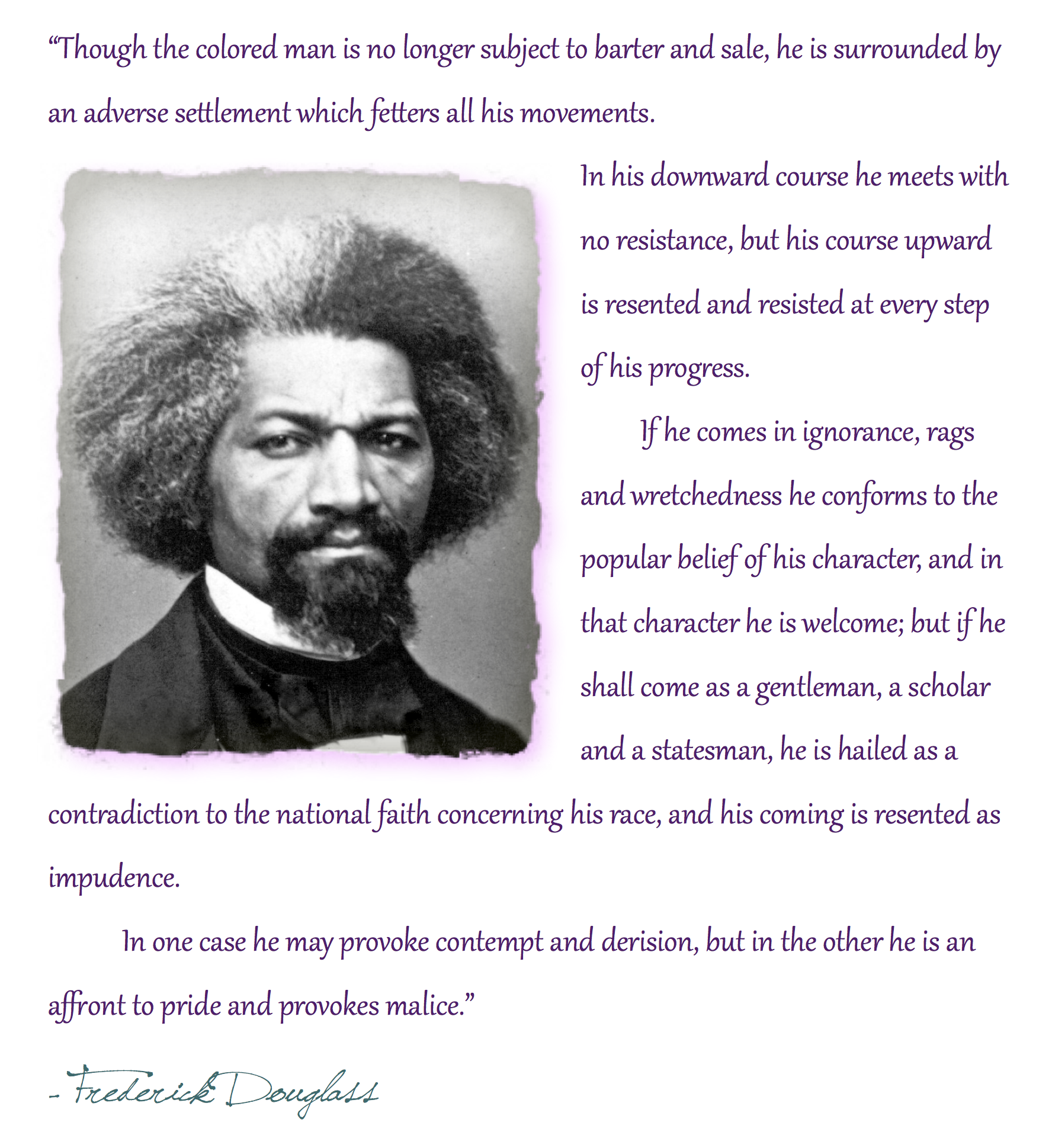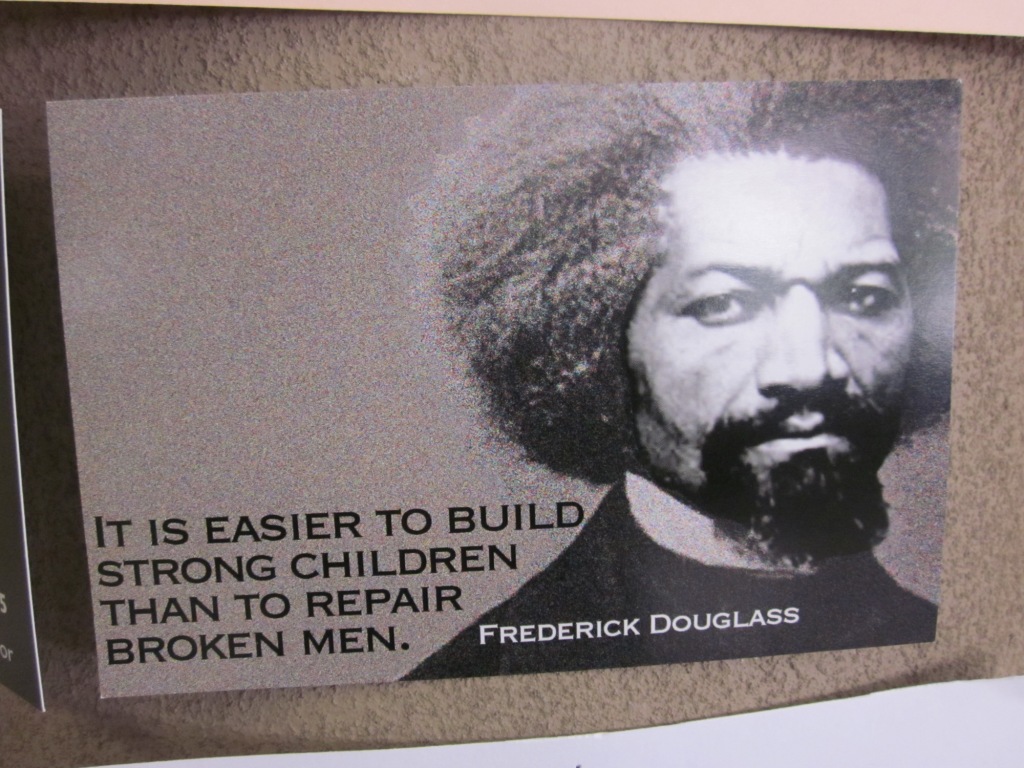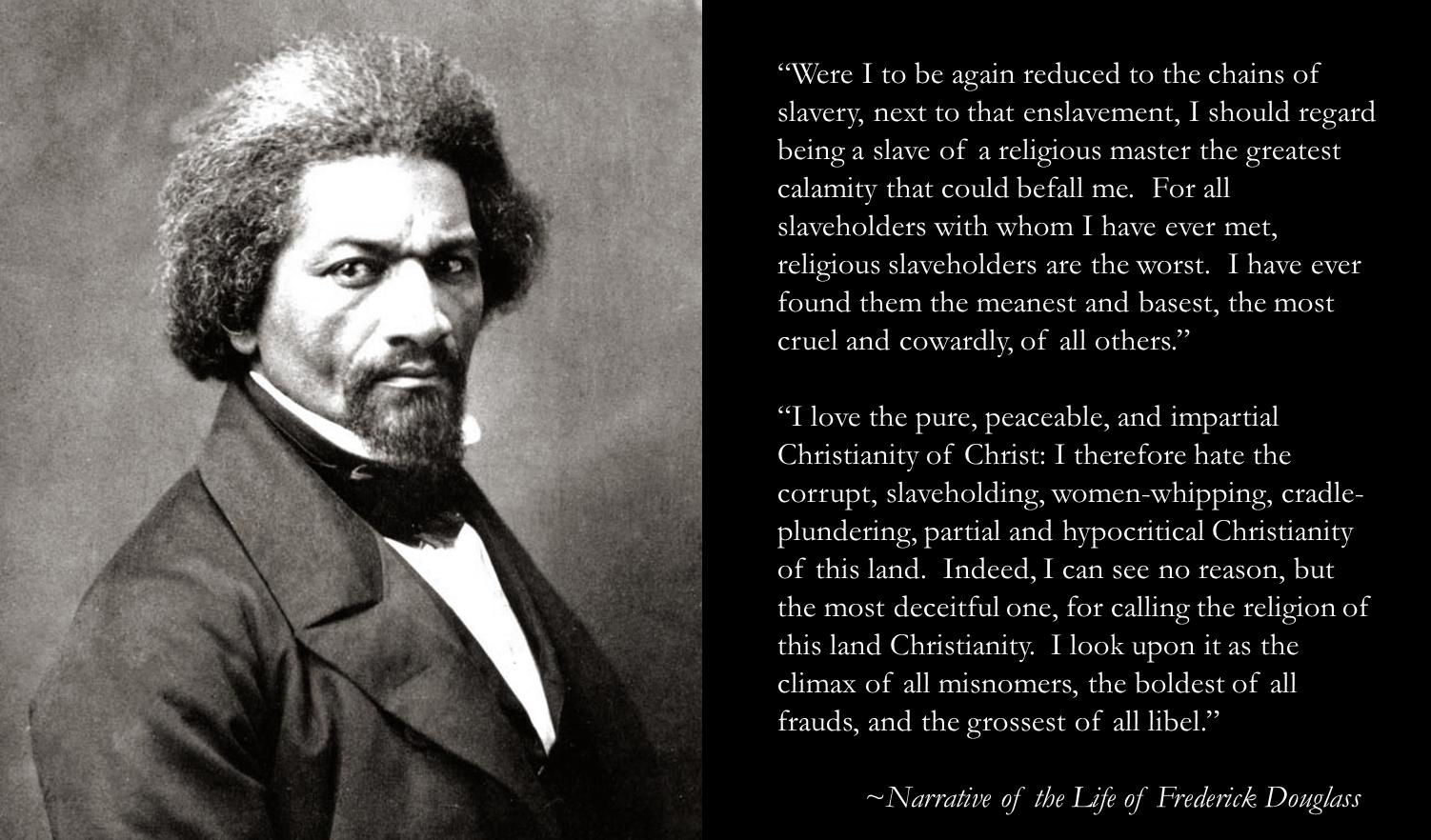Frederick Douglass Quotes On Education: Wisdom For Today's Learners
When you think about the lasting impact of powerful voices, it's almost impossible not to consider Frederick Douglass, a man whose words still resonate with incredible force. His life story, really, is a testament to the transformative power of learning, a lesson he spoke about often and with deep conviction. He believed that education was not just about books or facts; it was, in a way, a key to unlocking human potential and achieving true liberty.
Frederick Douglass, born into slavery, taught himself to read and write, defying immense obstacles. This self-education became the very foundation of his remarkable career as an abolitionist, orator, and writer. His personal journey, you know, truly showed the world how knowledge could shatter chains, both literal and figurative.
So, as we look at some of his most profound observations on learning, we can find incredible guidance for our own lives, even now, in this modern age. These aren't just historical sayings; they are, in fact, timeless truths that can inspire anyone seeking growth and understanding. We will explore what he believed about the true value of schooling and knowledge, and how his ideas can still shape our thinking today.
Table of Contents
- Frederick Douglass: A Life Dedicated to Learning
- The Path to Freedom Through Knowledge
- Knowledge: The Ultimate Liberator
- Cultivating Minds for a Better Society
- Connecting Douglass to Our World Today
- Frequently Asked Questions About Frederick Douglass and Education
- A Lasting Legacy of Learning
Frederick Douglass: A Life Dedicated to Learning
Before we get into his specific thoughts on learning, it's pretty important to understand a little about the man himself. Frederick Douglass was, basically, a self-made scholar, a truly remarkable person who rose from the brutal conditions of slavery to become one of the most influential figures in American history. His life story, you know, is the ultimate example of how education can transform everything.
Born into bondage in Maryland around 1818, he had no formal schooling, yet he secretly learned to read and write, a skill that was, in fact, forbidden for enslaved people. This act of defiance was, arguably, his first step towards freedom. He escaped slavery in 1838 and dedicated his life to fighting for the abolition of slavery and for civil rights for all people. His speeches and writings were incredibly powerful, shaping public opinion and pushing for change. Here's a quick look at some key details about him:
| Name | Frederick Douglass (born Frederick Augustus Washington Bailey) |
| Born | Around February 1818, Talbot County, Maryland |
| Died | February 20, 1895, Washington, D.C. |
| Known For | Abolitionist, orator, writer, statesman, social reformer |
| Key Achievements | Authored influential autobiographies, advocated for civil rights, served as U.S. Minister to Haiti, advisor to Abraham Lincoln |
His story, therefore, gives so much weight to every word he uttered about the importance of education. He didn't just talk about it; he lived it, showing its profound impact on a person's life and on society as a whole.
The Path to Freedom Through Knowledge
For Frederick Douglass, education was not just an academic pursuit; it was, very simply, the very essence of freedom itself. He saw ignorance as a tool of oppression, something that kept people enslaved, both physically and mentally. His most famous quote on this topic, I mean, truly sums up his belief.
He once wrote, "Knowledge makes a man unfit to be a slave." This powerful statement, you know, goes right to the heart of his experience. When he learned to read, he realized the injustice of his situation, and that awareness fueled his desire for liberty. It's almost as if learning opened his eyes to the possibilities beyond his current circumstances.
Education as a Weapon
Douglass believed that knowledge was, quite literally, a weapon against tyranny. For him, learning to read was an act of rebellion, a way to fight back against a system designed to keep people ignorant and powerless. He saw that if enslaved people could read, they could understand their rights, communicate with each other, and organize for their freedom. This idea, in some respects, still holds true today: knowledge empowers people to challenge injustice.
This perspective, too, highlights why oppressors often restrict access to information. They know, apparently, that an educated populace is much harder to control. So, for Douglass, every book read, every word understood, was a step towards dismantling the very structures of oppression. It was a silent, yet incredibly effective, form of resistance.
The Power of Self-Improvement
Beyond the fight for freedom, Douglass also emphasized the importance of self-improvement through learning. He didn't wait for others to educate him; he took his learning into his own hands, often secretly, with incredible determination. This commitment to self-education, you know, is a powerful lesson for anyone today.
He understood that personal growth was, essentially, a continuous journey. Even after gaining his freedom, he continued to read, write, and speak, constantly refining his thoughts and arguments. This relentless pursuit of knowledge, in a way, made him an even more formidable advocate for justice. It shows us that learning isn't just for school; it's a lifelong endeavor that helps us become better versions of ourselves.
Knowledge: The Ultimate Liberator
Frederick Douglass saw knowledge as the ultimate liberator, freeing not just the body, but also the mind and spirit. He understood that true freedom meant having the capacity to think critically, to express oneself, and to participate fully in society. This broader view of liberation, you know, is a central theme in his writings and speeches.
He once famously said, "Once you learn to read, you will be forever free." This quote, you know, captures the essence of his belief that literacy opens up a world of possibilities that no one can ever take away. It's a freedom that goes beyond physical boundaries, allowing the mind to travel and explore, even when the body cannot.
The Importance of Reading
For Douglass, reading was, perhaps, the most important gateway to knowledge. He described the immense joy and struggle of teaching himself to read, often using discarded newspapers and the help of kind children. He understood that through reading, he could access the thoughts and ideas of others, gaining insights into history, philosophy, and the world around him. This ability to absorb information, in fact, was what truly broadened his perspective.
He believed that reading allowed individuals to transcend their immediate circumstances and connect with a larger human experience. It was a way to break down the mental barriers imposed by slavery and ignorance. So, for him, the act of reading was a revolutionary act, a quiet but powerful rebellion against the limitations placed upon him and his people.
Beyond the Classroom
Douglass's emphasis on self-education also reminds us that learning isn't confined to formal classrooms. While he certainly valued structured education, his own experience showed that curiosity and determination could lead to profound learning anywhere. He learned from observation, from conversations, and from every scrap of printed material he could find. This practical approach to learning, you know, highlights the idea that every experience can be a teaching moment.
This perspective is, in a way, very relevant today, where information is everywhere. We can learn from podcasts, online courses, documentaries, and even just by observing the world around us. Douglass's life teaches us that the desire to learn is more important than the setting in which that learning takes place. It's about being an active participant in your own intellectual growth, basically.
Cultivating Minds for a Better Society
Frederick Douglass didn't just see education as a personal benefit; he viewed it as absolutely essential for the progress and betterment of society as a whole. He believed that an educated populace was necessary for a truly democratic and just nation. His vision for learning, you know, extended far beyond individual achievement.
He often spoke about the responsibility of educated individuals to uplift their communities. He understood that when people gained knowledge, they had a duty to use it to fight for justice, to advocate for the less fortunate, and to contribute to the common good. This idea of education serving a larger purpose is, in fact, a cornerstone of his philosophy.
Education for Moral Growth
For Douglass, education wasn't just about acquiring facts; it was also about developing moral character and a sense of justice. He believed that true learning should cultivate empathy, critical thinking, and a commitment to human rights. He saw ignorance as a breeding ground for prejudice and injustice, while knowledge, apparently, could foster understanding and compassion.
He argued that an educated mind was better equipped to discern right from wrong and to stand up against oppression. This moral dimension of education, you know, was incredibly important to him. It wasn't enough to simply know things; one had to use that knowledge to act ethically and to build a more humane world. This idea, in some respects, shapes how we think about civic education even today.
The Community of Learning
Douglass's life also shows us the power of a community that values learning. While he started his journey alone, he later found mentors and allies who supported his intellectual growth. He understood that a supportive environment, where ideas could be shared and discussed, was incredibly valuable. This sense of collective learning, you know, is something he championed.
Think about a place like Frederick, Maryland, for instance. Located less than one hour from Washington, D.C., Baltimore, and Gettysburg, this city, surrounded by mountain views, wineries, orchards, and a vibrant main street, seems to embody a spirit of community and growth. With over 200 specialty shops, galleries, and restaurants, downtown Frederick, MD, offers a rich environment for discovery. Frederick is also home to the Frederick School of Classical Ballet, and approximately 30 dance studios are located around the city, showing a commitment to various forms of learning and expression. Frederick County even launched a new Spanish YouTube channel to provide information about county services, events, and initiatives to its 11,000 Spanish-speaking residents, which, in a way, echoes Douglass's belief in making knowledge accessible to all. The city's focus on events, art exhibits, and a lively downtown, where you can explore things to do when visiting Frederick, Maryland, like visiting the battlegrounds of Monocacy or dining at Volt restaurant, creates a dynamic setting where people can engage, learn, and grow together, much like Douglass envisioned a society that prioritizes shared knowledge.
Connecting Douglass to Our World Today
Frederick Douglass's words on education are, frankly, as relevant today as they were in his time. In an age of information overload, his emphasis on critical thinking and the pursuit of genuine knowledge feels more important than ever. He reminds us that true learning is about understanding, not just memorizing, and that it should empower us to make a difference in the world. His message, you know, really cuts through the noise.
His insistence on education as a tool for freedom and social change continues to inspire movements for justice and equality globally. Whether it's advocating for accessible education for all, promoting media literacy, or simply encouraging lifelong learning, Douglass's legacy continues to shape our aspirations for a more informed and equitable society. It's almost as if his voice, even now, calls us to action.
We can learn more about Frederick Douglass and his enduring impact on our site, and perhaps link to this page to explore other historical figures and their legacies. His ideas are, essentially, a blueprint for personal and societal betterment.
Frequently Asked Questions About Frederick Douglass and Education
What did Frederick Douglass believe was the purpose of education?
Frederick Douglass, very simply, believed that the purpose of education was to liberate the mind and spirit, making individuals unfit for slavery and capable of achieving true freedom. He saw it as a tool for personal empowerment and, in fact, a crucial means for social and moral progress. It was, arguably, the path to self-determination and the ability to challenge injustice.
How did Frederick Douglass learn to read and write?
Frederick Douglass learned to read and write through self-effort and clandestine lessons, often defying the laws of his time. He initially received some basic instruction from his master's wife, Sophia Auld, before her husband stopped it. He then, basically, continued his learning by trading bread for lessons with white children in Baltimore and by secretly studying newspapers and books. This determination, you know, truly highlights his incredible drive.
Why is Frederick Douglass's emphasis on education still important today?
Frederick Douglass's emphasis on education is still important today because it underscores the timeless connection between knowledge, freedom, and social justice. His words remind us that education is a powerful tool for overcoming adversity, fostering critical thinking, and empowering individuals to advocate for change. In a world full of information, his focus on genuine understanding and its use for betterment is, in fact, incredibly relevant.
A Lasting Legacy of Learning
Frederick Douglass's life and words offer us, really, an enduring source of inspiration. His unwavering belief in the power of education, even against the most formidable odds, serves as a powerful reminder that learning is not a privilege, but a fundamental right and a pathway to a better life. His legacy, you know, is a constant call to cultivate our minds and to use our knowledge for the greater good.
As we reflect on his profound insights, we are reminded that the pursuit of knowledge is, basically, a lifelong journey that benefits not just ourselves, but our communities and the world around us. So, let his powerful words continue to guide us in our own quests for understanding and liberation, both personal and collective. His wisdom, after all, truly stands the test of time.

Frederick Douglass Quotes On Education. QuotesGram

Frederick Douglass Quotes On Education. QuotesGram

Frederick Douglass Quotes On Education. QuotesGram